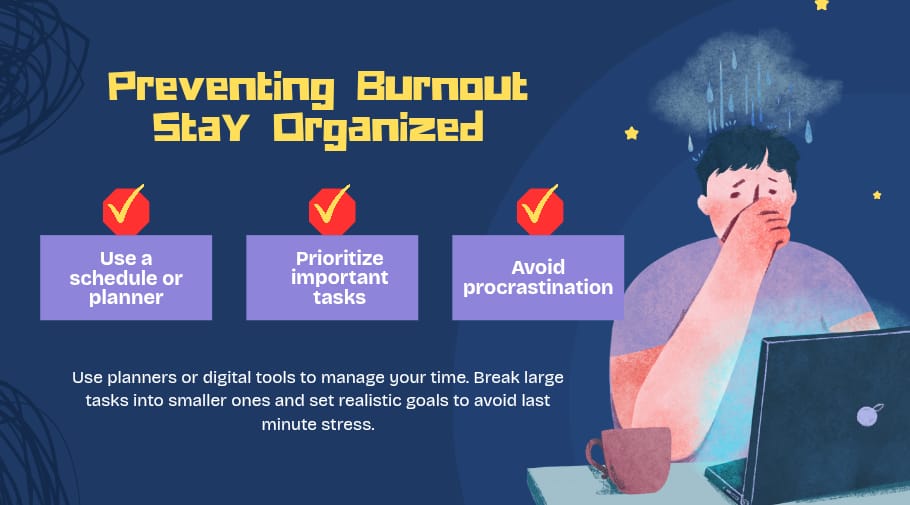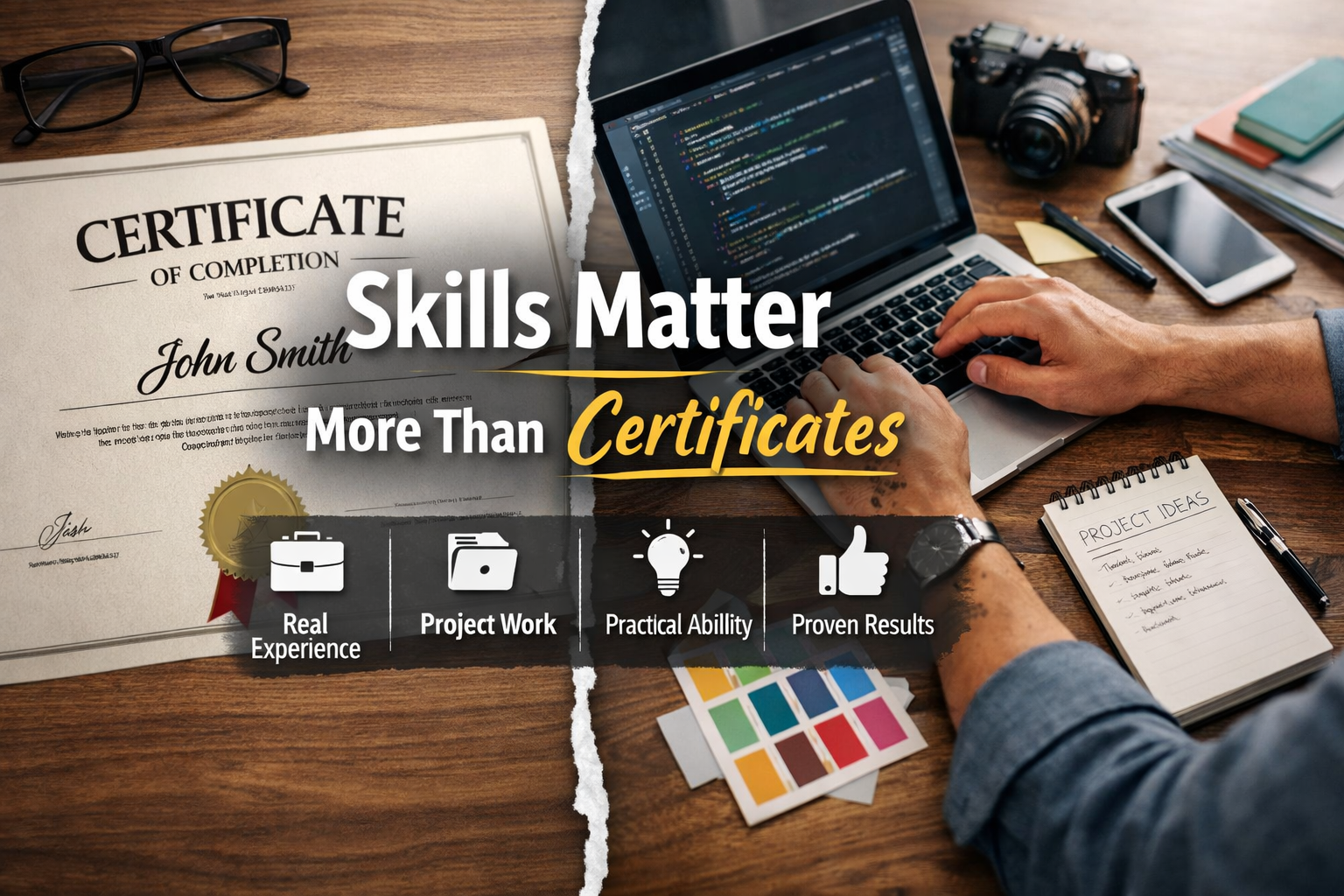Introduction
Working from home offers comfort and flexibility, but it also brings one major challenge — procrastination. Without the structure of an office environment, it’s easy to delay tasks, get distracted by personal activities, or lose track of time. Over time, this can affect productivity, focus, and overall work performance.
Beating procrastination while working from home requires self-discipline, proper time management, and a clear daily routine. In this article, we’ll explore practical strategies to help you stay motivated, focused, and productive — even when working from the comfort of your home.
Understanding Procrastination
Procrastination is the act of delaying or avoiding tasks that need to be done, even when you know it may cause stress or negative consequences later. It’s not just about being lazy — it’s often linked to how our mind reacts to pressure, fear, or lack of motivation.
When working from home, procrastination becomes easier because there’s no direct supervision and plenty of distractions around — like social media, TV, or household chores.
Common reasons behind procrastination include:
- Lack of clear goals or priorities — not knowing where to start.
- Perfectionism — waiting for the “right time” or ideal conditions to begin.
- Overwhelm — feeling tasks are too big or complicated.
- Low motivation or energy — especially when work feels repetitive or uninteresting.

Tips to Beat Procrastination While Working
1. Set Clear and Achievable Goals to Beat Procrastination
The biggest challenge is that no one is monitoring you directly. That’s why there is a high chance of distraction and procrastination. A simple solution to this problem is a clear plan for your day.
- Make a to-do list in the morning.
- Divide your big tasks into small parts, such as if you have to write a report, then divide it into a research, draft, and a final edit.
- Cut off tasks one by one from the list as you complete. Through this, you will feel a sense of achievement, which increases your motivation.
Benefits: If your day is structured and focused, then you can easily avoid distractions and increase your productivity.
2. Stick to Routine for Productivity
Having no routine, can become a disadvantage. If you work at irregular times or till late at night, then there will be a negative impact on both your health and your motivation.
- Make a fixed routine, like fixing a particular time for sending applications, learning, and self-care.
- Set a start and end time like an office.
- Follow them strictly, do not show any laziness in your routine.
Benefits: The mind gets clarity of when you are going to work and when you are relaxing through routine. This discipline motivates you highly in the long term and increases productivity. It also helps to maintain a healthy work-life balance and helps to avoid overworking and burnout.
3. Reward Yourself for Achievements to Beat Procrastination
You should appreciate your effort whether it is small or big.
- Become a reward system for yourself.
- You can prepare a coffee treat for yourself after completing a big task.
- You can also enjoy your favorite snack or watch an episode of your favorite show to appreciate yourself.
- Not only for big efforts, you should also appreciate yourself for small achievements. You can pat your back after a small achievement to feel good.
Benefits: These self-rewards encourage you psychologically and motivation gets long-term sustainability from self-appreciation, and you don’t feel your work is boring or forced.
4. Maintain a Positive Mindset to Beat Procrastination
Staying positive during a long job search can be challenging, but it’s essential for keeping motivation high. One effective strategy is positive self-talk — remind yourself of your skills, achievements, and past successes. Using affirmations daily, such as “I am capable of finding the right job for me,” can reinforce self-confidence and resilience.
Journaling or practicing gratitude can also help manage rejection. Writing down small wins, lessons learned, or things you are thankful for shifts your focus from setbacks to progress.
Finally, avoid comparing yourself to others. Everyone’s career journey is unique, and measuring yourself against someone else’s timeline can lead to unnecessary stress. Focus on your growth and the steps you are taking to reach your goals.
5. Design a Distraction-Free Workspace
A very important step in the home office is choosing a location. If you do a setup in the wrong place, then distraction can increase, and productivity will decrease. Location should be according to your work’s nature. If you have to attend frequent calls and meetings, then your space should be noise-free. The size of the space also matters; you have to choose a location where your desk, chair, and storage fit comfortably. And also take care of proper ventilation and lighting to keep fresh and focused. A thoughtful location choice can improve your work experience a lot.
Quiet vs. high-traffic areas in the house
To increase productivity, you have to select a quiet area for a home office. Do not choose the location near high traffic areas such as the living room or kitchen because family members stay and they talk or do things that increase noise. You should choose a location near the bedroom’s corner, attic, or any unused room that is peaceful. If you make sure of all these things, then you can work quietly without any interruptions and also attend meetings without any background noise. But if you do not have a quiet place and you have to use a high-traffic area, then you should use noise-cancelling headphones or room dividers to reduce distraction.
Natural lighting and window placement
Natural lighting is very important because it boosts mood and energy levels. You have to choose a corner near a big window so that sunlight can enter your workspace. But keep in mind, monitor should not be in direct sunlight, otherwise glare can happen, and eyes strain can also happen. Window placement should be in a way that you can see the natural view at the time of working because it reduces stress. If there is insufficient natural light, then use a warm LED desk lamp. The proper balance of light increases your focus, comfort, and productivity.
Separation from personal spaces
Keeping your home office separate from your personal space helps in creating clear mental boundaries. When you mix work and personal areas, your brain struggles to switch into work mode. That’s why you should try to have a workspace where there’s no influence from the bed, TV, or dining area. Having a separate space reduces distractions and helps you avoid doing personal tasks in between work. If a dedicated room isn’t possible, you can use a room divider, bookshelf, or screen to create a separate zone. This clear separation greatly helps in maintaining a healthy work-life balance.
6. Take Regular Breaks
Sitting continuously in front of a laptop without taking any breaks is an unhealthy option. It can cause fatigue, stress, and even burnout.
- You can try the Pomodoro technique, like focus work for 25 minutes and then a 5-minute break.
- Walk during your break rather than scrolling social media during your break.
- You can also take a nap of 10 to 15 minutes after searching job for 2 hours.
- One or two longer breaks are also important, in which you can have lunch, do meditation, or do some exercise.
Benefit: These small actions can refresh your body and mind. Motivation increases naturally when you feel refreshed. It decreases stress and improves concentration.
7. Stay Motivated to Beat Procrastination
For a worker, many things are important and there are also many challenges. But the most important thing for growth as a remote worker is self-motivation. If you are self-motivated, they can overcome all challenges, handle their work easily, and build their career successfully. In fact, self-motivation is not only important for job seekers but for everyone, whether it’s a child, a worker, or a student. Because without self-motivation, work cannot be done properly.
Remote workers should always stay self-motivated and keep appreciating themselves, whether it’s for a small achievement or completing a big task. And even if they don’t achieve something at times, they should still appreciate themselves for the effort and for giving their best.
When we stay self-motivated, we give our 100% to our work, which improves the quality of our work, earns us appreciation, and builds trust with others.
Conclusion
Beating procrastination while working from home is all about creating structure, maintaining discipline, and staying motivated. By setting clear goals, managing distractions, taking regular breaks, and caring for your mental health, you can stay focused and productive even in a home environment. Consistency and self-awareness are the keys to turning work-from-home challenges into success.
This article covered practical ways to overcome procrastination while working from home, including setting routines, creating a distraction-free workspace, using time management techniques, and staying mentally healthy.
By following these tips, you’ll be able to improve focus, complete tasks on time, and maintain a better work-life balance, leading to higher productivity and personal satisfaction.
Read more informational blogs here.
To explore multiple opportunities, click here.







Leave a Reply